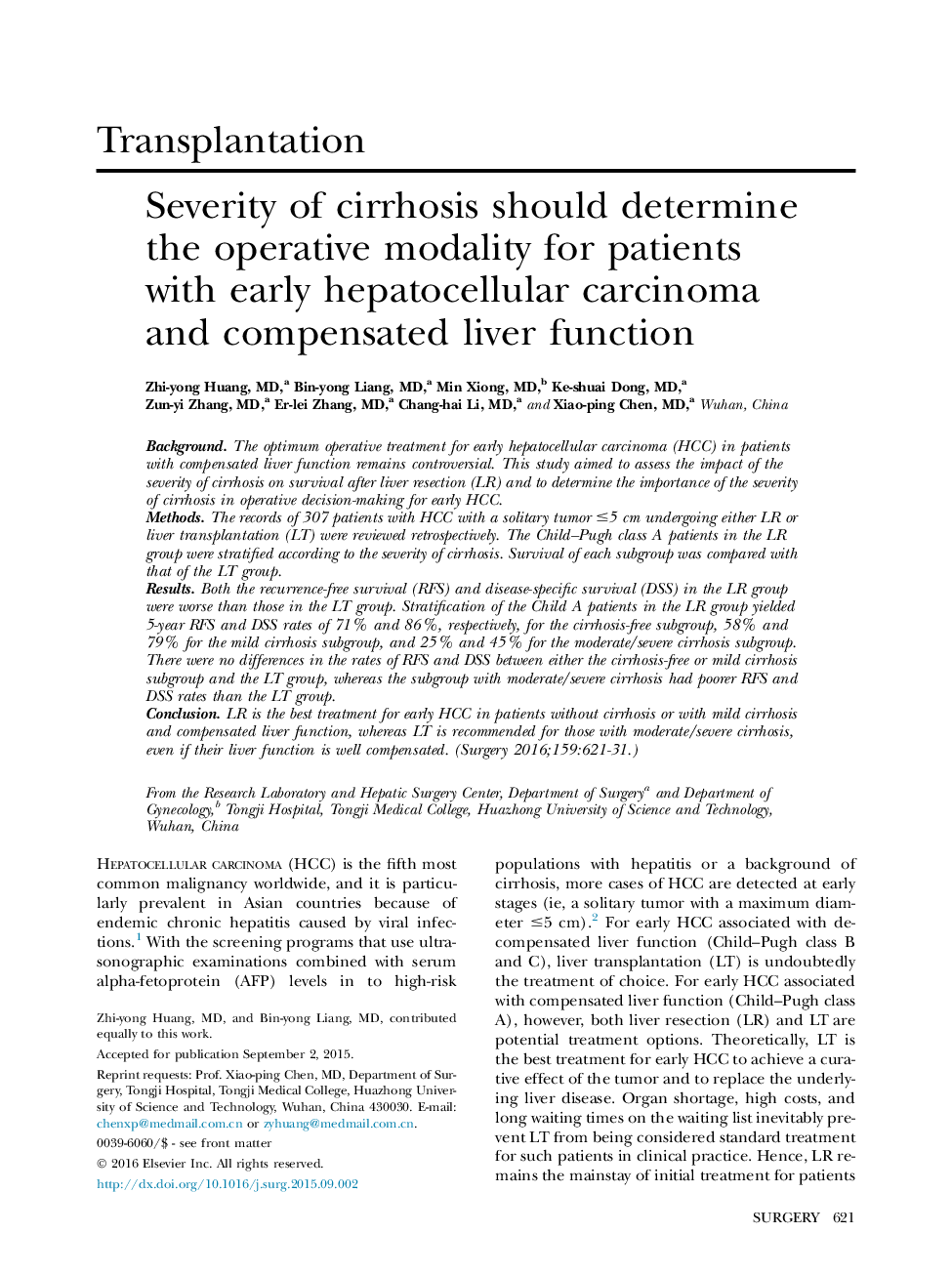| Article ID | Journal | Published Year | Pages | File Type |
|---|---|---|---|---|
| 4306473 | Surgery | 2016 | 11 Pages |
BackgroundThe optimum operative treatment for early hepatocellular carcinoma (HCC) in patients with compensated liver function remains controversial. This study aimed to assess the impact of the severity of cirrhosis on survival after liver resection (LR) and to determine the importance of the severity of cirrhosis in operative decision-making for early HCC.MethodsThe records of 307 patients with HCC with a solitary tumor ≤5 cm undergoing either LR or liver transplantation (LT) were reviewed retrospectively. The Child–Pugh class A patients in the LR group were stratified according to the severity of cirrhosis. Survival of each subgroup was compared with that of the LT group.ResultsBoth the recurrence-free survival (RFS) and disease-specific survival (DSS) in the LR group were worse than those in the LT group. Stratification of the Child A patients in the LR group yielded 5-year RFS and DSS rates of 71% and 86%, respectively, for the cirrhosis-free subgroup, 58% and 79% for the mild cirrhosis subgroup, and 25% and 45% for the moderate/severe cirrhosis subgroup. There were no differences in the rates of RFS and DSS between either the cirrhosis-free or mild cirrhosis subgroup and the LT group, whereas the subgroup with moderate/severe cirrhosis had poorer RFS and DSS rates than the LT group.ConclusionLR is the best treatment for early HCC in patients without cirrhosis or with mild cirrhosis and compensated liver function, whereas LT is recommended for those with moderate/severe cirrhosis, even if their liver function is well compensated.
